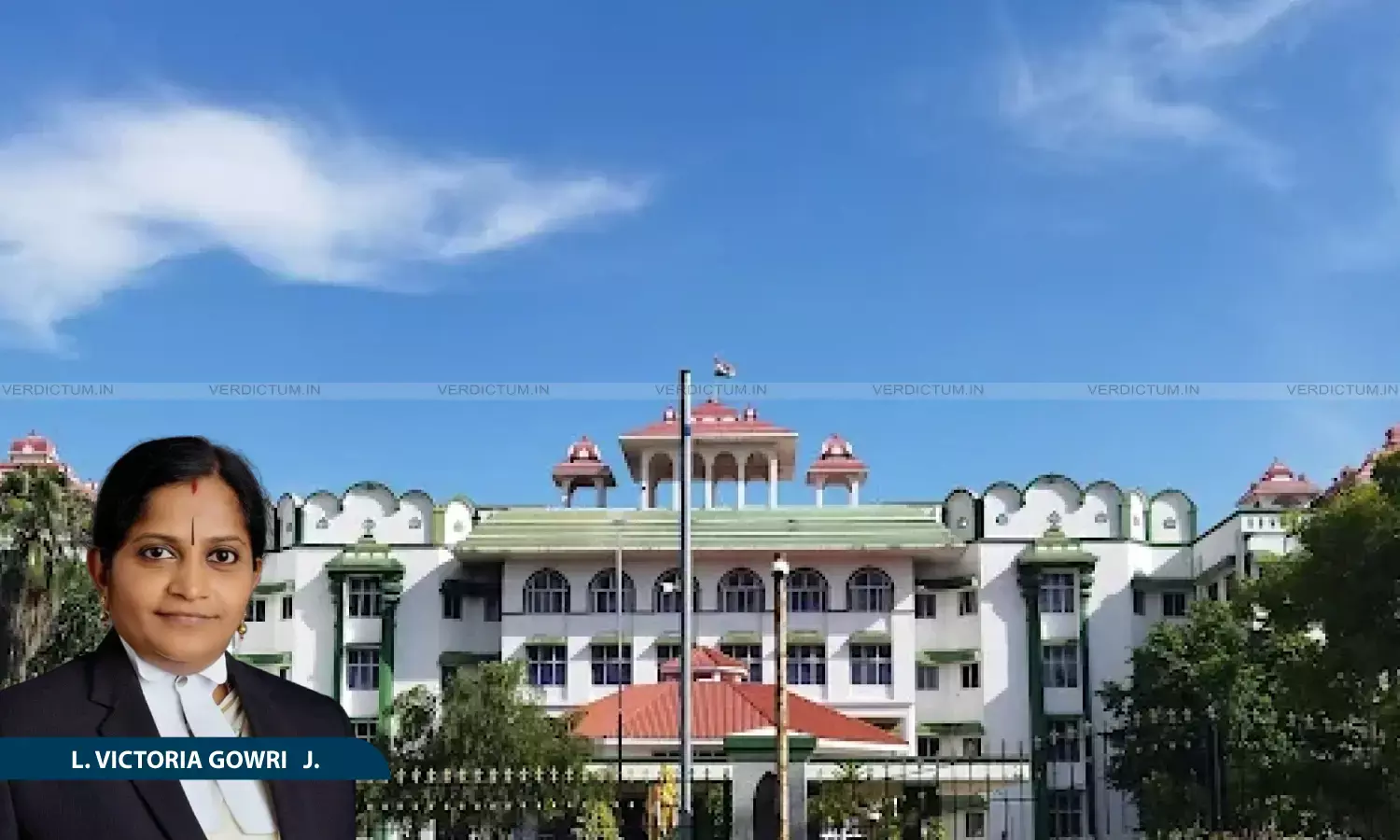Courts Cannot Permit Former In-Laws To Reopen Matrimonial Issues Under Pretext Of Child Welfare When Natural Guardian Is Alive & Responsible: Madras High Court
The High Court held that former in-laws cannot intrude upon the privacy and settled marital life of a divorced and remarried woman by initiating repeated proceedings on the pretext of child welfare, especially when the natural guardian is alive, capable, and responsible.

Justice L. Victoria Gowri, Madras High Court, Madurai Bench
The Madras High Court has held that former in-laws cannot invoke child-related litigation to intrude into the privacy and settled life of a divorced and remarried woman when the natural guardian of the child is alive and financially capable.
The Court was hearing a criminal revision petition filed on behalf of a minor child by his paternal grandfather, challenging the dismissal of a maintenance claim filed against the child’s mother under Section 125 CrPC.
A Single Bench of Justice L. Victoria Gowri, while dismissing the revision petition, observed that “Courts cannot permit former in-laws to intrude into that privacy by instituting repeated litigations under the pretext of child welfare when the legal guardian is alive and responsible.”
The Bench further remarked that “the present revision is a misconceived attempt by the petitioner’s grandfather to disturb the respondent’s settled and peaceful family life, notwithstanding that the biological father of the minor, who is the petitioner’s own son, is alive, capable, and bound by his own undertaking in the mutual consent divorce decree to maintain the child”.
Advocate S.Prabhu represented the petitioner, while Advocate J. Barathan represented the respondents.
Background
The minor child was born to spouses who later dissolved their marriage through a mutual consent decree. In that decree, custody of the minor was vested with the father, who undertook to maintain the child. The mother expressly renounced any claim for maintenance from the father and was not required to contribute to the child's upkeep.
Both parents remarried thereafter. The father was employed with the Airport Authority of India and was financially supporting the child, who resided with his paternal grandparents.
In 2023, the child’s paternal grandfather filed a maintenance petition against the mother under Section 125 CrPC. The Family Court dismissed the petition, holding that the grandfather had no locus standi and that the mother could not be compelled to pay maintenance in view of the consent decree.
Court’s Observation
The Madras High Court, upon hearing the matter, examined whether a paternal grandfather could invoke Section 125 CrPC against the mother when the natural guardian, the father, was alive, solvent, and had undertaken responsibility for the child’s maintenance.
The Court noted that under Section 6 of the Hindu Minority and Guardianship Act, the father is the natural guardian of a minor, and the grandfather cannot assume that role unless formally appointed by a competent court under the Guardians and Wards Act. The Family Court's finding that the grandfather lacked locus standi was held to be correct.
The Court further held that the mutual consent divorce decree clearly placed custody and responsibility of the minor exclusively on the father. That arrangement, recorded by a competent court, could not be indirectly modified by filing a fresh maintenance proceeding against the mother years later.
The Bench observed that the petition was not genuinely motivated by the child’s welfare but was aimed at reopening past matrimonial discord and interfering with the respondent’s settled life after remarriage. The Court stressed that the father, earning a substantial salary and having voluntarily undertaken responsibility for the child, remained fully capable of maintaining him.
The Court held that such proceedings amount to judicial harassment and violate the constitutional protection of dignity and privacy guaranteed under Article 21.
The Bench emphasised that the doctrine of co-parenting must operate within the framework agreed upon by the biological parents, and that remarriage confers a right to stability and peace that cannot be undermined by collateral litigation initiated by former in-laws.
Conclusion
Holding that the maintenance petition lacked legal foundation and bona fides, the High Court affirmed the dismissal by the Family Court.
The criminal revision was dismissed with no costs, and the Family Court’s order was confirmed.
Cause Title: M.V. v. P.
Appearances
Petitioner: Advocate S. Prabhu
Respondent: Advocate J. Barathan


